brand
How FirstBank Employees are Making a Difference in their Immediate Environments Through the SPARK Initiative

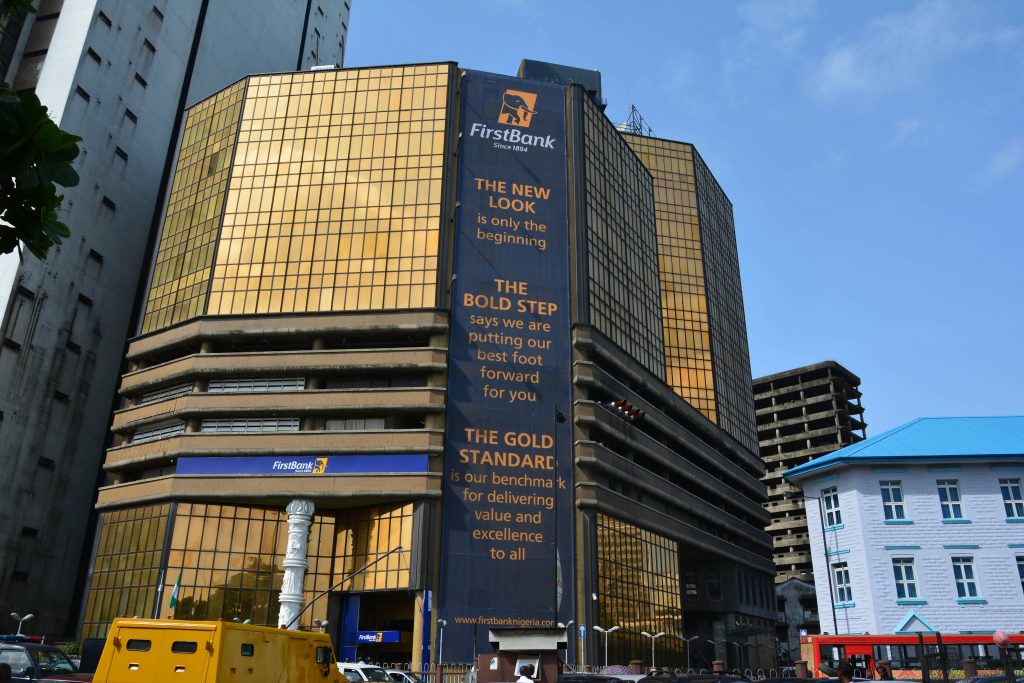 Every other day, social media brings us a picture or video of a dilapidated school somewhere in Nigeria or shares images of a distraught widow, a struggling roadside trader or street hawker, or some other hapless victims of the extremely harsh realities of living in Nigeria.
Every other day, social media brings us a picture or video of a dilapidated school somewhere in Nigeria or shares images of a distraught widow, a struggling roadside trader or street hawker, or some other hapless victims of the extremely harsh realities of living in Nigeria.
Immediately, as if on cue or automated, viewers launch into stinging attacks of government, public officials, the privileged class and even Nigeria itself. The attacking mob wastes no time in calling for the government’s head or the heads of public officials with responsibilities in the jurisdiction or sector where the unfortunate sights surfaced from.
The online mob seems unconcerned that while its eyes and ears, aided and locked in by the binoculars and headsets of social media, are completely focused on distressing situations it may not be able to help other than rant about, countless situations that it can help are calling for attention in its immediate neighbourhood every single day. Focusing on things so far away while ignoring or pretending not to see the things in one’s immediate vicinity is a human tendency which is well recognised. Journalists even have a term for a similar or related behaviour among their own. “Afghanistanism” is the tendency of the media to focus on news and happenings in remote places and other parts of the world to the exclusion or neglect of covering happenings and problems in the local environment of the media. It is like the psychological or emotional equivalent of the eye defect medical practitioners refer to as hyperopia or farsightedness. Sufferers can see objects that are far away but have difficulty focusing on objects that are up close.
By focusing on faraway objects people do not have to offer to give a helping hand but can offer their finger to point at others and their tongue to criticise and pontificate. Everyone can criticise and pontificate online or become an “e-warrior”, like Nigerians like to call it, fighting government and whoever and whatever in society they are unhappy with from the comfort and safety of their bedroom and behind their keyboard. It is the easiest of things to do but not the noblest or kindest. It is the well-trodden path but should never be confused with taking the high road in reaching out with compassion to people around whose lives and circumstances could do with some kindness.
Taking the high road rather than practising Afghanistanism or psychological hyperopia is the approach adopted by First Bank of Nigeria Limited, the premier bank in West Africa with its impact woven into the fabric of society. This approach has played an important role in sustaining FirstBank’s development-oriented services for over 127 years as the region’s foremost financial inclusion services provider. It has been a driving motivation for how the bank operates. FirstBank always considers the impact of all its operations and actions on customers and other stakeholders, including the environment, to ensure it is making a net positive difference in the end. And this orientation has attracted to the bank people who share a similar outlook – whether as employees, partners or other stakeholders. They look forward every year to an opportunity to follow in the footsteps of the bank and make a net positive difference in their own immediate environments. These men and women do not pretend that they can solve or intervene in all the challenging situations confronting people in their immediate environments but they do not refrain whenever they can lend a helping hand and make a difference.
Through an Employee Giving and Volunteering programme employees of FirstBank find a ready platform to fully identify with the compassionate disposition of the bank, which further has a number of initiatives that enable employees to give expression to this identification. The Start Performing Acts of Random Kindness (SPARK) Initiative is but one such initiative. Aimed at expanding and deepening FirstBank’s involvement within the communities of its various stakeholders, SPARK seeks to do so by integrating and institutionalising random acts of kindness in society. Among employees SPARK has inspired and encouraged kindness and empathy as well as consideration for others. It has also contributed to employee bonding and teamwork, which have been critical to enhancing work performance.
This year’s implementation of the SPARK Initiative has seen employees under the banner of their various departments make choices regarding the specific nature of intervention they would want to undertake and the specific group of people or institutions within their immediate communities that they would want to extend the milk of human kindness to. Employees and their departments could choose any one of the four areas that constitute FirstBank’s corporate responsibility and sustainability (CR&S) pillars: Education, entrepreneurship, health and welfare, and environment. Under education, they have had a choice to make between support for infrastructural facilities in schools, such as renovation of dilapidated buildings, painting of school buildings, and provision of laptops and desktops; or donation of items such as classroom chairs and tables, books and stationaries; or provision of scholarships for best students, feeding of school students per day or week, funding of a school initiative such as JETS club, bootcamp, space club, etc. If employees and their departments were interested in supporting entrepreneurship, then they had the chance to empower through entrepreneurship programmes of their choosing such as sponsoring youth and women to acquire skills like fashion designing, baking, hairstyling, make-up artistry, electrical repairs, event decoration and planning, catering, etc., or enabling entrepreneurs with tools and equipment to work or supporting SMEs and start-ups.
Where the health and welfare area was their preferred area of intervention, employees and their departments could choose from: donations to orphanages (selected from an approved list of orphanages); support to a good cause, for example lending a helping hand to the Down Syndrome Foundation; support to widows; support to people with health-related issues; and off-setting medical bills. And if employees and their departments were to decide to go for the environment, then they could choose from: support to environmental issues, such as support to Nigerian Conservation Foundation (NCF) initiatives; donation of garbage cans to a community; partnership with a recycling firm to recycle waste; support to LAWMA such as donating cleaning tools (brooms, dustbin parkers), etc.
While several departments in FirstBank did things worth showcasing so the good citizens of Nigeria (individual and corporate) can emulate, this piece has just enough space to accommodate the activities of only three departments: Human Capital Management and Development (HCMD), Compliance, and Marketing and Corporate Communications (M&CC) departments. The employees in these departments seemed involved in efforts to outdo each other in acts of kindness, which made more sense and would leave a real difference on the ground as against criticising and pontificating online on faraway issues.
The Human Capital Management and Development department decided that reaching out to one of the most vulnerable groups in Nigeria – underprivileged widows and their underfed children – was the best way they could stay true to the “Human” in their name. And employees in the department moved beyond their Marina location to the nearest environment where some of the most vulnerable widows are to be found to go show kindness. The Makoko community situated in Lagos Mainland and which CNN once described in a report as “Nigeria’s floating slum” was overwhelmed to receive the august visitors from HCMD bearing so much food stuff to benefit their widows and children. What they did not realise was the overwhelming sense of gratitude felt by their benefactors for the opportunity to be able to give back.
Tagged “Feed a Widow Initiative”, the undertaking was HCMD employees’ way of putting a smile back on the faces of widows in impoverished communities and they got more than they could ever have imagined. Their hosts received them with the broadest of smiles and said goodbye to them with the grandest of gratitude; and they left with very broad smiles on their own faces. The jury is still out on who between the hosts and their guests ended up with the broadest of smiles on the day. And given the “fierce contest” to outdo the other in smiling, one is again forced to wonder why people labelled e-warriors would choose to forfeit this kind of real joy for the joyless world they have locked themselves in by clinging on to Afghanistanism and psychological hyperopia.
Not so for employees in the Compliance department. Not to be outdone and, in fact, as though going up the hierarchy of human needs, Compliance employees decided that they would focus on the education need of their beneficiary community. HCMD had done an excellent job of providing the basic “stomach infrastructure” without which it would be difficult, if not impossible, to get any of the beneficiaries interested in any talk about more sublime matters like education and mental development. So, employees of Compliance department, in order to encourage pupils to continue their pursuit of education, procured Mathematics and English Language textbooks for 617 pupils who would be in senior secondary (SS) 1 and 2 classes of Gbara Community Secondary School in Jakande, Ajah in the next academic session. The visit to the school and book donation were undertaken when the pupils were in the third term preceding the new academic session.
The gesture was Compliance employees’ own way of giving back in such a manner as to relieve the pupils of this public school, particularly those from indigent homes, and their parents or guardians of the financial burden involved in providing textbooks for the two core subjects. It was also, in an uncanny way, an attempt by the employees to ensure the pupils were in full compliance with the requirements for taking on the two most important subjects in the secondary school curriculum, putting the pupils at a vantage position to excel in these two essential subjects. There were other benefits of the engagement that the employees noted. They observed that their presence in the school inspired the children, giving them “hope that a better life was within reach and could be achieved.” The employees thus expressed optimism that the engagement boosted the children’s interest in succeeding in life through the pursuit of education.
For employees of the Marketing and Corporate Communications department (M&CC), entrepreneurship was the area they decided to focus on, to make a difference in their own immediate environment. Every day they came to their office on Broad Street or the bank’s head office in Marina, they passed by a number of roadside traders around the various office buildings in the locations. They observed that some of these traders were exposed to the elements or having difficulties in their business and struggling to make ends meet, and decided that they would do something about it. And true to their word, they did something about it that made so much difference in the businesses and circumstances of the traders. They provided the traders the following: branded umbrella to offer shade from both sun and rain, improving the conditions under which they operated and their quality of life; branded chairs and tables to accommodate more customers in their corner as well as grants to boost their business capital.
Anyone who has met with employees in the corporate communications department of any major bank in Nigeria would readily admit that these professionals have among them some of the most skilful digital marketers around. So, it is not for lack of skills to be e-warriors that M&CC employees chose to extend the milk of human kindness flowing in them to roadside traders around their office rather than practise Afghanistanism. They could have chosen to concentrate all their time and resources on attacking the government online and blaming public officials for all the challenges in the economy and the spate of insecurity all over the nation and whatever else would make M&CC employees true champions of Afghanistanism and psychological hyperopia. But would that make any difference to the lot of the roadside traders around them and lessen their burden? So, M&CC employees chose the road less travelled but one that could deliver the desired impact, and it did.
There are so many lessons to draw and feelings to take away from the examples demonstrated by employees of these three departments in Nigeria’s foremost lender. Besides committing their time and resources to their chosen humanitarian initiatives using the platform of the SPARK Initiative that places FirstBank at the forefront of the social impact space through employee advocacy, the employees have shown that they have the milk of human kindness flowing through their veins. They have demonstrated that they would rather consider how they could extend kindness to people around them and make a difference than pretend not to see the situations affecting those around them while playing Afghanistanism and psychological hyperopia online.
For the rest of us who are not FirstBank employees, the message could not be clearer: The next time we feel like we must share on social media distressing images to provoke government-bashing or we feel constrained to make stinging comments on such images that are shared to criticise Nigeria, we should first pause and look around us. We should look to see if we can identify situations where we, not government or Nigeria, can make a difference. Then we should take our fingers off the keyboard and go out there or make that call that will make a difference in some other person’s life and circumstances. We should be like FirstBank and its employees. We should follow their example of trying to outdo themselves in showing kindness to others. We should start where we are with what we have, to make a difference right now – yes, this very minute and not some future time.
brand
Body of Bank CEOs Delivers Critical Relief to Flood Victims in Niger State, Pledges Continued Support
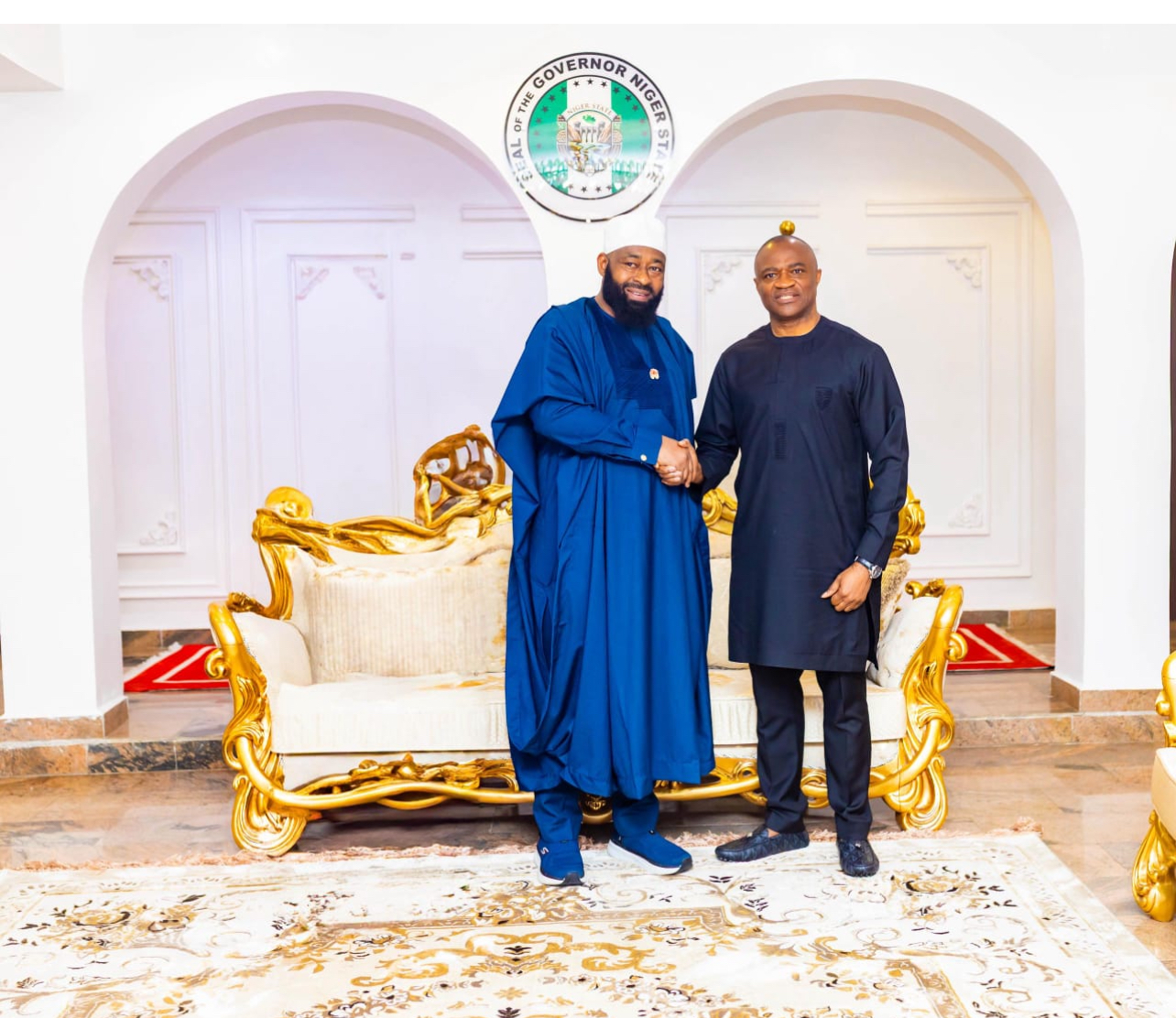
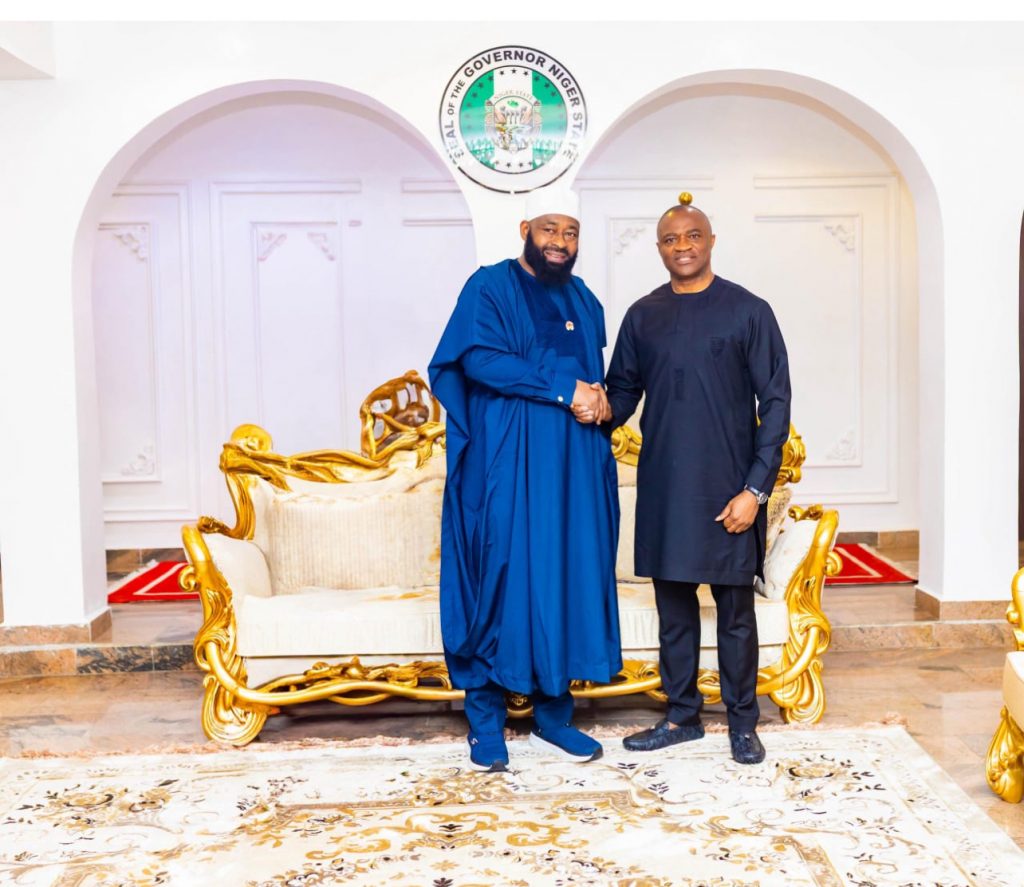 Pix 1 L-R: Registrar & Chief Executive of the Chartered Institute of Bankers of Nigeria (CIBN) Akin Morakinyo; Managing Director and Chief Executive Officer of Keystone Bank Limited, Mr. Hassan Imam; Group Managing Director/Chief Executive, Zenith Bank, Dame (Dr.) Adaora Umeoji; The Executive Governor of Niger State, His Excellency, Governor Mohammed Umaru Bago; Chairman, Body of Bank CEOs and Group Managing Director/CEO, United Bank for Africa (UBA) Plc, Oliver Alawuba; Managing Director Taj Bank Mr. Hamid Joda; and Secretary to the Government of Niger State (SSG), Alhaji Abubakar Usman during the donation of relief materials from the Body of Bank CEOs in Nigeria, aimed at supporting victims of the recent devastating floods in Mokwa Local Government Area held at the Niger State House in Abuja at the weekend.
Pix 1 L-R: Registrar & Chief Executive of the Chartered Institute of Bankers of Nigeria (CIBN) Akin Morakinyo; Managing Director and Chief Executive Officer of Keystone Bank Limited, Mr. Hassan Imam; Group Managing Director/Chief Executive, Zenith Bank, Dame (Dr.) Adaora Umeoji; The Executive Governor of Niger State, His Excellency, Governor Mohammed Umaru Bago; Chairman, Body of Bank CEOs and Group Managing Director/CEO, United Bank for Africa (UBA) Plc, Oliver Alawuba; Managing Director Taj Bank Mr. Hamid Joda; and Secretary to the Government of Niger State (SSG), Alhaji Abubakar Usman during the donation of relief materials from the Body of Bank CEOs in Nigeria, aimed at supporting victims of the recent devastating floods in Mokwa Local Government Area held at the Niger State House in Abuja at the weekend.
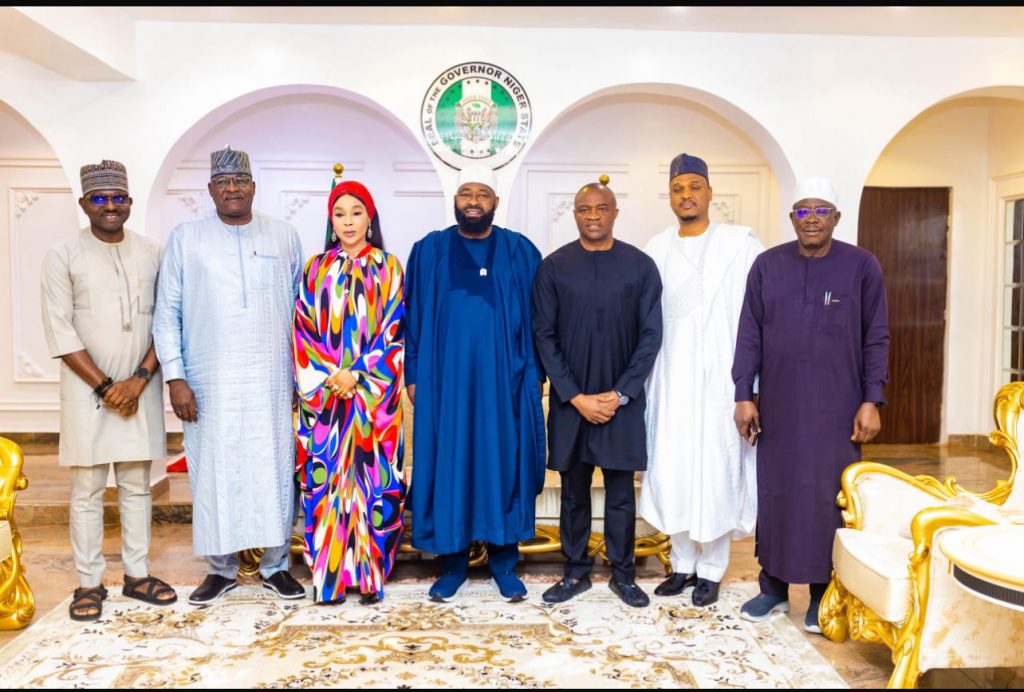 The Executive Governor of Niger State, His Excellency, Governor Mohammed Umaru Bago; Chairman, Body of Bank CEOs and Group Managing Director/CEO, United Bank for Africa (UBA) Plc, Oliver Alawuba during the donation of relief materials from the Body of Bank CEOs in Nigeria, aimed at supporting victims of the recent devastating floods in Mokwa Local Government Area held at the Niger State House in Abuja at the weekend
The Executive Governor of Niger State, His Excellency, Governor Mohammed Umaru Bago; Chairman, Body of Bank CEOs and Group Managing Director/CEO, United Bank for Africa (UBA) Plc, Oliver Alawuba during the donation of relief materials from the Body of Bank CEOs in Nigeria, aimed at supporting victims of the recent devastating floods in Mokwa Local Government Area held at the Niger State House in Abuja at the weekend
Pix 3: L-R: Managing Director and Chief Executive Officer of Keystone Bank Limited, Mr. Hassan Imam; Group Managing Director/Chief Executive, Zenith Bank, Dame (Dr.) Adaora Umeoji; The Executive Governor of Niger State, His Excellency, Governor Mohammed Umaru Bago; Chairman, Body of Bank CEOs and Group Managing Director/CEO, United Bank for Africa (UBA) Plc, Oliver Alawuba; and Managing Director Taj Bank Mr. Hamid Joda, during the donation of relief materials from the Body of Bank CEOs in Nigeria, aimed at supporting victims of the recent devastating floods in Mokwa Local Government Area held at the Niger State House in Abuja at the weekend.
In a heartwarming display of corporate social responsibility and solidarity, a consortium of Nigerian Bank CEOs, has pledged significant support to alleviate the suffering of flood victims in Niger State
The Executive Governor of Niger State, His Excellency, Governor Mohammed Umaru Bago on Saturday in Abuja received relief materials from the Body of Bank CEOs led by its Chairman, Mr Oliver Alawuba.
The gesture is aimed at supporting victims of the recent devastating floods in Mokwa Local Government Area of the state.
Oliver Alawuba who is also the Group Managing Director/CEO of United Bank for Africa(UBA), led the delegation to the Niger State Government house Abuja, where they presented essential relief items, including bags of rice, beverages, vegetable oil, and mattresses, valued at millions of naira.
The devastating floods, which have affected thousands of families in the region, have prompted the banking community to come together in a show of empathy and support to those displaced and affected by the disaster.
In his address, Alawuba expressed the banking industry’s deep sympathy for the affected communities and reaffirmed their dedication to sustainable support while pointing out that the gesture underscores the banking sector’s commitment to corporate social responsibility and humanitarian intervention especially in times of crisis.
He said, “Today, we stand with the people of Niger State in their time of need. We want you to know that we feel your pain and we give you our firm resolve to assist in rebuilding lives. This donation is just the beginning; we pledge continued collaboration with the Niger State Government to ensure long-term recovery and resilience.”
Other top CEOs and executives at the presentation included by the Group Managing Director/Chief Executive of Zenith Bank, Dame (Dr.) Adaora Umeoji, the Registrar and Chief Executive of the Chartered Institute of Bankers of Nigeria (CIBN), Mr. Akin Morakinyo, Managing Director and Chief Executive Officer of Keystone Bank Limited, Mr. Hassan Imam; Managing Director Taj Bank Mr. Hamid Joda; Secretary to the Government of Niger State (SSG), Alhaji Abubakar Usman senior government officials, banking executives, and media representatives, marking a significant step in public-private collaboration for humanitarian relief.
Governor Bago, who received the relief materials on behalf of the state, commending the banking sector for its timely intervention.
“This gesture reinforces the critical role of private-sector partnerships in disaster response,” Governor Bago stated. “We are grateful for this support and look forward to deeper collaboration in safeguarding our communities against future challenges. On behalf of the good people of Niger State, particularly the affected families in Mokwa, I extend our sincerest thanks for this timely and compassionate intervention,” Bago stated.
“The recent floods in the state brought immense hardship to the people, displacing families, destroying livelihoods, and disrupting communities and the banking sector, under the leadership of Alawuba and his esteemed colleagues, has demonstrated that beyond financial stewardship, they are true partners in national development and humanitarian service.
This donation is not just about the physical items; it is a symbol of hope, resilience, and the unwavering support of Nigeria’s financial institutions in times of need. It reassures our people that they are not forgotten, the governor stated.
…
brand
FirstBank Wins Gold for Best Corporate University in Social & Climate Change Impact

 FirstBank, the West Africa premier bank and financial inclusion services provider, is thrilled to announce that its Corporate University, FirstAcademy, has been awarded the Gold Award for Best Corporate University in Social & Climate Change at the Global Council of Corporate Universities (GlobalCCU) Awards 2025.
FirstBank, the West Africa premier bank and financial inclusion services provider, is thrilled to announce that its Corporate University, FirstAcademy, has been awarded the Gold Award for Best Corporate University in Social & Climate Change at the Global Council of Corporate Universities (GlobalCCU) Awards 2025.
This highly acclaimed award recognises FirstAcademy’s outstanding commitment to driving social and climate change learning initiatives, aligning its learning and development programs with internal stakeholder needs, and promoting Corporate Social Responsibility (CSR).
The GlobalCCU Awards is a prestigious, biannual recognition of excellence in corporate universities, setting the highest standard for the industry. With a rich 12-year history dating back to its inaugural ceremony in Paris in 2013, the awards have consistently honoured outstanding Corporate Universities, learning and development structures worldwide. The GlobalCCU Awards celebrate institutions that create remarkable value for people, businesses, society and the planet.
FirstBank’s FirstAcademy exemplifies this mission by earning the Gold Award for Best Corporate University in Social & Climate Change at the 2025 ceremony in Paris, France. This distinction reflects FirstAcademy’s dedication to fostering sustainability and environmental responsibility; developing impactful learning initiatives that transcends traditional corporate training, with broader societal goals; integrating climate action into its portfolio and operations; expanding climate finance offerings and developing a climate action capacity building training program.
FirstAcademy was inaugurated in 2012 as the Bank’s designated corporate academy designed to provide structured talent development, knowledge management and culture change initiatives. One major objective of the academy is to equip staff with the requisite knowledge and skills required to deliver on the Bank’s strategic aspirations and to thrive in an ever-evolving work environment while contributing to social and environmental responsibility.
According to the Founder and Chairman of the GlobalCCU Awards, Annick Renaud-Coulon, “FirstAcademy is an outstanding Corporate University that is clearly the Best Corporate University globally for driving social and climate change learning initiatives.”
Congratulating FirstAcademy, the Founder and Chairman of the GlobalCCU Awards, Annick Renaud-Coulon, said “FirstAcademy is a very mature Corporate University which demonstrates a strong alignment with FirstBank’s vision of responsible banking and sustainable development, with clear support from senior leadership and a governance model that strategically connects learning to business priorities. Congratulations to FirstAcademy for setting a visionary standard in advancing meaningful social and climate change impact through learning and inclusive capacity building!”
In the words of Olayinka Ijabiyi, the Acting Group Head, Marketing and Corporate Communications, FirstBank “We are delighted to receive this international recognition for our efforts in promoting social responsibility and climate action. This award serves as a testament to our belief that businesses can be a force for good, driving transformation that extends beyond profit to create sustainable and equitable futures for all. FirstAcademy’s programs have not only enhanced employee skills but also contributed to the well-being of society and the environment.”
As FirstBank’s FirstAcademy continues to bridge the gap between corporate initiatives and community needs, it sets a leading example for corporate universities around the globe, inspiring others to follow suit in the quest for meaningful change.
brand
Access Holdings Topsin Asset Qualityin Proshare’s 2025Tier1 Banking Rankings
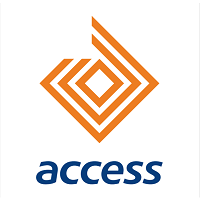

Access Holdings PLC has been ranked the Tier 1 bank
-
www.accessbankplc.comAccessHoldingsdemonstratedstrongfundamentalsacrossalltheseparameters.Itclosed Full Year 2024 with total assets of 41.5 trillion and a loan book of 13.1 trillion.₦ ₦The Group’scapitaladequacyratiostoodat20.46percent,whileassetgrowthfortheperiodreached55.49percent.Itscostofriskwasheldat1.25percent,netinterestmargin recorded at 6.80 percent, and earnings growth was an impressive 88.05 percent,all indicators of a business built on financial soundness and execution excellence.Speaking at the launch event, Olufemi Awoyemi, Chairman of Proshare, described thereport as a vital mirror into the shifting dynamics of Nigeria’s financial services industry.“AccessHoldingshasprovenitselfasastrong,adaptiveinstitution.Itsrobustcapitalbase, successful fundraising, and continental expansion efforts show a group that is notonlygrowingbutevolving.Asrecapitalisationreshapesthebankinglandscape,institutions like Access Holdings will continue to define the future of finance in Africa.”He further remarked on the nuance behind E
-

 news5 years ago
news5 years agoUPDATE: #ENDSARS: CCTV footage of Lekki shootings intact – Says Sanwo – Olu
-

 news2 years ago
news2 years agoEnvironmental Pollutions : OGONI COMMUNITY CRIES OUT, THREATENS TO SHUT DOWN FIRSTBANK,SHELL OIL COMPANY OPERATIONS FOR NOT PAYING COURT AWARD
-

 lifestyle5 years ago
lifestyle5 years agoFormer Miss World: Mixed reactions trail Agbani Darego’s looks
-

 health4 years ago
health4 years agoChairman Agege LG, Ganiyu Egunjobi Receives Covid-19 Vaccines
-

 politics2 months ago
politics2 months agoBreaking : Oborevwori , Okowa others dumps PDP, defects to APC
-

 lifestyle4 years ago
lifestyle4 years agoObateru: Celebrating a Quintessential PR Man at 60
-

 news1 month ago
news1 month agoBREAKING: Tinubu swears in new NNPCL Board
-

 health5 years ago
health5 years agoUPDATE : Nigeria Records 790 new cases of COVID-19


